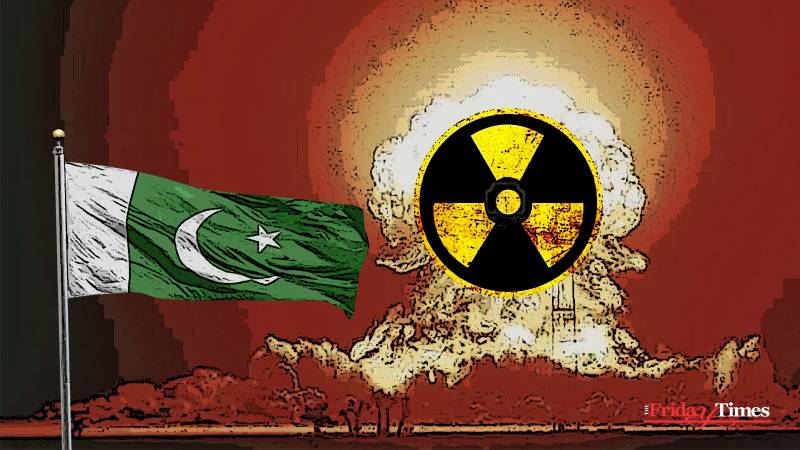
In response to India's inaugural nuclear test on 18 May 1974, the international community swiftly reacted with profound concern, prompting the creation of the Nuclear Suppliers Group (NSG), often referred to as the London Group. Comprising leading nations such as the US, UK, France, Germany, and Japan, this coalition sought to curtail the risk of nuclear proliferation. By imposing economic sanctions and exerting diplomatic pressures on India, the NSG aimed to underscore the gravity with which the world viewed India's burgeoning nuclear ambitions.
Undeterred by international condemnation and economic sanctions, India proceeded with additional nuclear tests on 11 and 13 May 1998. These tests highlighted India's resolute commitment to its nuclear weapons program and its determination to defy global norms in pursuit of strategic objectives. The repercussions were immediate: tensions in South Asia escalated, and concerns about the potential for a perilous regional arms race were significantly reinforced.
India’s nuclear tests represented a unique form of state-sponsored nuclear proliferation. Unlike earlier nuclear developments by countries such as the US, Soviet Union, UK, France, and China—primarily driven by external threats and the dynamics of World War II and the Cold War—India's motives diverged significantly. The 1998 tests, in particular, were primarily aimed at establishing India as a regional power and securing a strategic advantage over its neighbors, especially Pakistan. This shift underscored a departure from traditional security-driven nuclear development to one focused on regional dominance.
In May 1998, L.K. Advani, then the Indian Home Minister and also from the BJP, issued a stern warning to Pakistan that non-compliance with Indian directives 'will be futile and costly for Pakistan.' Such rhetoric seems to be echoed today under the leadership of another BJP figure, the incumbent Prime Minister Narendra Modi.
Following the 1998 Indian nuclear tests at Pokhran, the US Senate Subcommittee on Near Eastern and South Asian Affairs, part of the Committee on Foreign Relations, swiftly convened a series of hearings. During the initial session, Senator Jesse Helms critically addressed the Indian government's misconception that nuclear capabilities would elevate India to superpower status. He starkly warned American lawmakers of India's potential to act unpredictably and pose a threat not just regionally but also towards the US and its allies. Emphasizing the gravity of the situation, Senator Helms advocated for robust enhancements to US national defense to preempt any future Indian military provocations.
Today, armed with nuclear submarines and Agni series ICBMs, the concerns expressed in historical testimonies are magnified. India's expanding military capabilities pose complex challenges not only directly to the US but also to its allies. Accusations have surfaced about India operating networks that could influence global perceptions and finance terrorist activities aligning with its strategic interests. At present, the US, and its allies openly blame India for terrorizing their nationals by targeted killings and espionage. These concerns are compounded by the global presence of the Bharatiya Janata Party (BJP), the political wing of the RSS, with branches in over 40 countries, primarily in America, Australia, and Europe. Critics argue that the BJP is using religious narratives to bolster its political agenda both domestically and internationally.
Senator Jesse Helms acknowledged Pakistan's concerns about being politically and militarily threatened by India’s nuclear ambitions. This viewpoint gains substance from events in 1998: the then BJP leader and former Indian Prime Minister Atal Bihari Vajpayee, during his national election campaign, acknowledged that with nuclear capabilities, he intended to 'take back that part of Kashmir that is under Pakistan’s occupation.' In the same year’s May, L.K. Advani, then the Indian Home Minister and also from the BJP, issued a stern warning to Pakistan that non-compliance with Indian directives 'will be futile and costly for Pakistan.' Such rhetoric seems to be echoed today under the leadership of another BJP figure, the incumbent Prime Minister Narendra Modi. During national election campaigns, the BJP continues to invoke nuclear power as a tool for asserting dominance, which suggests that India’s pursuit of nuclear weapons was less about defense and more about using a 'Hindu Bomb' for coercion, suppression, and terror."
Over the past 25 years since crossing the nuclear threshold, Pakistan has not only maintained a robust, operationalized deterrent capability but also upheld an impeccable nuclear safety and security regime.
The acquisition of nuclear deterrence capability was deemed essential for Pakistan to counter Indian aggression, at any cost. 'Youm-e-Takbeer,' the Day of Greatness, symbolizes Pakistan's achievement in securing the means to defend itself against any territorial threats. By conducting its nuclear tests, Pakistan demonstrated its commitment to maintaining national honor and survival by balancing power against its adversaries. The Indian pursuit of nuclear weapons necessitated Pakistan's development of its nuclear arsenal, fundamentally altering the security and strategic dynamics of South Asia.
Supported by a unanimous national consensus, Pakistan's nuclear program stands as a cornerstone of its impenetrable national security and a catalyst for accelerated socioeconomic progress. Over the past 25 years since crossing the nuclear threshold, Pakistan has not only maintained a robust, operationalized deterrent capability but also upheld an impeccable nuclear safety and security regime. Internationally, Pakistan’s reputation as a responsible nuclear state has been solidified. Furthermore, through active nuclear diplomacy, Pakistan continues to promote its policies of restraint and responsibility on the global stage, striving for integration into the mainstream nuclear order.
India’s continuous expansion of its nuclear weapons program has not only intensified the arms race in South Asia, making it a more dangerous and complex competition, but also heightened regional tensions and spurred technological advancements in ballistic missile capabilities. These developments threaten to destabilize regional security with potentially catastrophic consequences. To counter these risks, the international community, through forums such as the UN, must actively engage with India to promote dialogue, confidence-building measures, and cooperative security arrangements. Such efforts are crucial to mitigating conflict potential, curtailing nuclear proliferation, and fostering a stable security environment in the region.

